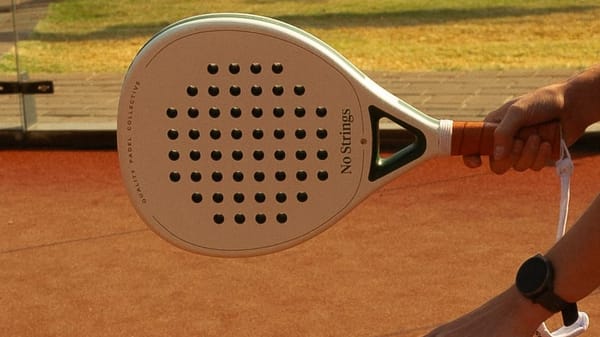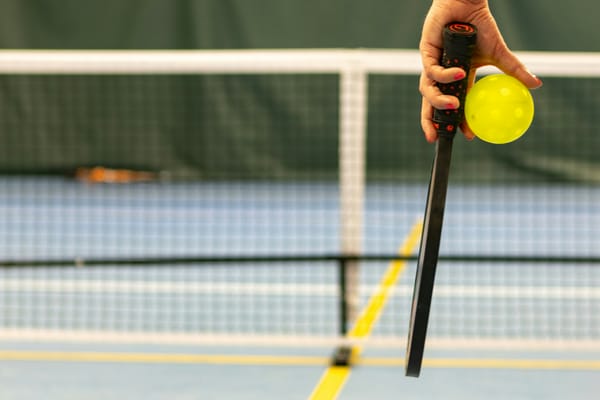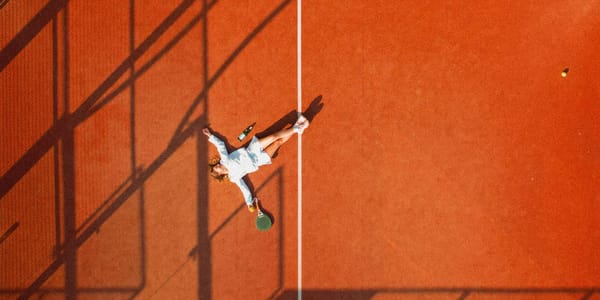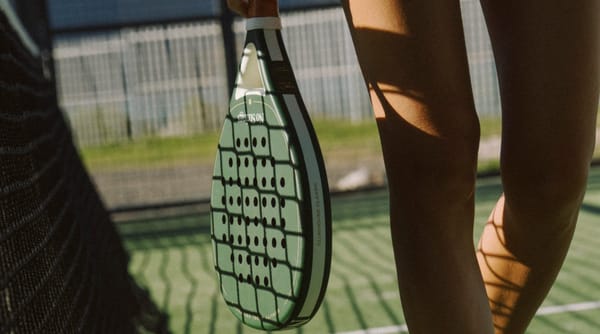Pickleball's Olympic Potential
With its rapid rise, many are asking the inevitable question: Could pickleball become an Olympic sport?

Pickleball is everywhere. From public parks in Florida to rooftops in New York and now in pockets across Europe and Asia, the sport has gone from quirky pastime to global talking point. It is attracting new players daily, sparking debates online, and even catching the attention of former tennis stars.
With its rapid rise, many are asking the inevitable question: Could pickleball become an Olympic sport?
Why the Olympic buzz?
Pickleball has many of the qualities the Olympics looks for. It has a growing international presence, a low cost of entry, simple rules, and a format that appeals to both casual and competitive players.
According to the Sports and Fitness Industry Association, pickleball has been the fastest growing sport in the United States for the last three years, with over 13 million players in 2024. That figure only counts regular players. Courts are appearing in schools, retirement villages, sports clubs, and even shopping mall car parks.
High-profile advocates are joining the conversation too. Tennis legends such as Andre Agassi and John McEnroe have played exhibition pickleball matches, using their platforms to showcase the sport’s excitement and accessibility. These appearances are more than celebrity stunts. They are part of a broader movement to position pickleball alongside other mainstream racket sports.
What the IOC looks for
The International Olympic Committee does not add sports based on popularity alone. A sport must meet specific criteria.
- Global reach: Active federations in multiple continents, with competitive participation across regions.
- Youth appeal: Sports must engage younger audiences and inspire the next generation of athletes.
- Competitive integrity: There must be established rules, anti-doping policies, and an international governing body.
- Gender balance: Men and women must have equal opportunities to compete.
Pickleball already has an international governing body called the International Federation of Pickleball (IFP) with member nations in North America, Europe, Asia, and Oceania. The sport has also begun building a professional circuit, with the Professional Pickleball Association (PPA) and Major League Pickleball (MLP) hosting high-profile tournaments.
However, compared to sports such as badminton or table tennis, pickleball is still in the early stages of establishing deep competitive roots outside the United States.

The hurdles
Despite its momentum, several challenges remain.
- Global adoption gap: While pickleball is booming in the United States and Canada, it is still relatively niche in Africa, South America, and parts of Asia.
- Perception issues: In some places it is still seen as a leisure activity for older players, which slows youth adoption.
- Olympic timeline: Even with rapid growth, new sports can take eight to twelve years to gain Olympic inclusion after meeting the requirements.
The recent inclusion of sports such as skateboarding, surfing, and sport climbing shows the IOC is willing to embrace new disciplines. However, each of those sports had decades of global competition before they reached the Games.
What needs to happen next
For pickleball to reach the Olympic stage, several steps are important.
- Stronger international tournaments: Consistent, high-quality competitions featuring players from every continent.
- Regional development programs: Support for coaches, court infrastructure, and junior pathways in underrepresented areas.
- Clear qualification pathways: A transparent system of world rankings and qualification events.
Athlete and federation advocacy — Continued lobbying by ambassadors and national sports bodies to secure pickleball’s place in multi-sport events.
A realistic short-term goal would be appearances in events such as the Pan American Games, Commonwealth Games, or World Games. These often act as stepping stones toward Olympic consideration.
Why it could happen
Pickleball’s growth is unlike almost anything in recent sports history. Its accessibility, low cost, and fast-paced play make it easy for communities to adopt. If the IFP and national federations focus on building international depth and elite-level competition, pickleball could be a contender for the Summer Olympics in the next few years.
Until then, the sport’s journey toward Olympic status is a story in itself. It is a test of whether a grassroots movement can evolve into a truly global sporting institution.
Bottom line
Pickleball has the popularity, the passion, and the momentum. The challenge now is turning a North American sensation into a truly global sport. If that happens, the Olympic dream might just move from wishful thinking to reality.





